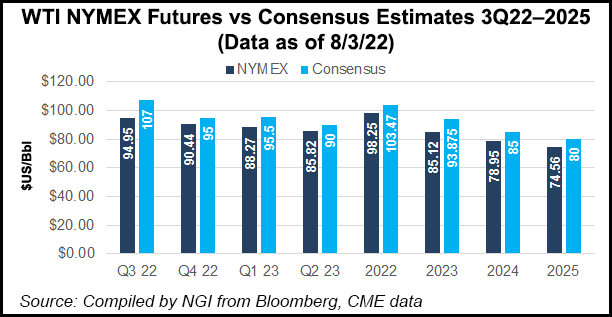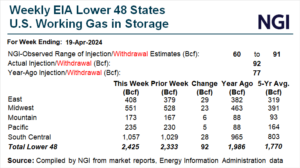Earnings | NGI All News Access | NGI The Weekly Gas Market Report | Permian Basin
Pioneer’s Sheffield Sees ‘More Upside than Downside’ for Oil Prices
© 2024 Natural Gas Intelligence. All rights reserved.
ISSN © 2577-9877 | ISSN © 1532-1266 | ISSN © 2158-8023 |



